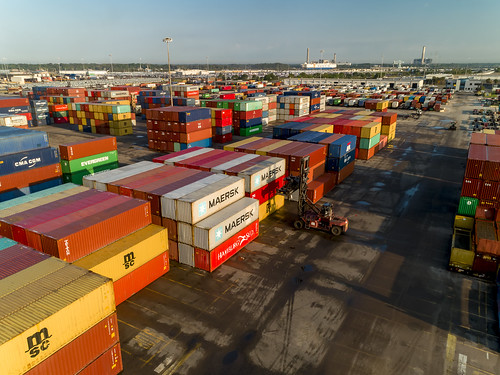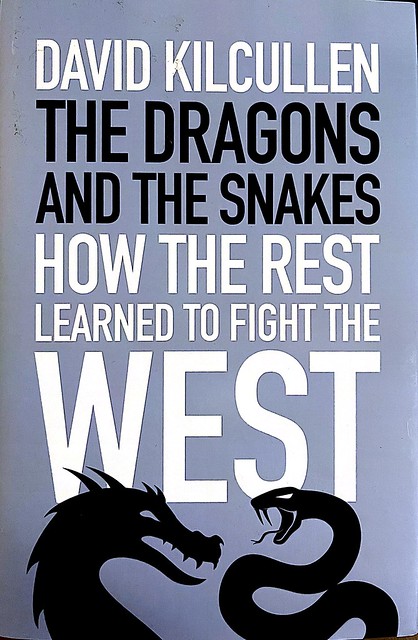Animoca Brands
Animoca Brands: How a big bet on blockchain and NFTs minted Hong Kong’s latest unicorn | South China Morning Post and more here The Sandbox developer Animoca Brands sees private valuation surge to US$5 billion amid metaverse, NFT frenzy | South China Morning Post – Animoca Brands has come up fast with The Sandbox. NFTs have become a bubble in Hong Kong. I was chatting to a good friend of mine who is now based in Shanghai. We talked about people we used to know who worked at various technology vendors. All are now involved in NFT businesses. The South China Morning Post has partnered with The Sandbox themselves. And then there is the speculation in metaverse property by Hong Kong’s oligopoly: Hong Kong property tycoons, brokers snap up virtual land in metaverse as valuations soar | South China Morning Post and deals like: CSOP AM launches metaverse ETF in Hong Kong | Financial Times
Animoca Brands is the face of a NFT bubble that feels curiously like the dot com era. Will there be a place for NFTs? Possibly. Will Animoca Brands be its Amazon or its Pets.com? I don’t know. But I feel queasy about the Hong Kong NFT wave that Animoca Brands are the poster child for. Particularly when on most other economic and societal metrics Hong Kong is running the other way; with a brain drain and economic decline.
Beauty
Omicron hits Wuhan, centered on cosmetics staff training – Global Times – centred around a training event by western beauty brand and multilevel marketing firm Nu Skin Enterprises – disclosure I used to work on the NuSkin brand in China and Hong Kong
China
Indian Tax Authorities Raid China’s Huawei, Triggering Protest From Beijing – WSJ
Games changer: How China is rewriting global rules and Russia is playing along – European Council on Foreign Relations – Beijing and Moscow are unlikely to rush to each other’s aid during a military escalation, be it in Ukraine or over Taiwan. But the enabling environment of their mutual diplomatic support matters greatly
Design
Shedding some light on “dark patterns” and advertising regulation – ASA | CAP – “dark patterns” encompass a range of misleading advertising practices that have long been regulated under the CAP Code, and some of which reflect practices that are banned in all circumstances under consumer protection law. The CAP Code has long applied to online advertising (including companies’ own websites), and many of the common “dark patterns” align with issues that the ASA is well-versed in regulating
Economics
UK risks spending more on defence equipment than it can afford, warns watchdog | Financial Times – damning NAO report
Ukraine conflict will have a significant impact on Asia – Nikkei Asia – Look for the crisis to consolidate alignment among Asia’s democracies
China Loosens New Mobile Payment Rules to Put Small Businesses at Ease – Caixin Global – the benefits of mobile payment oversight is going to mean less small and medium sized businesses fiddling their tax returns than currently happens
Energy
Tesla’s reverse on battery cells signals shift for electric vehicles | Financial Times
Wind Industry Warns EU to Take Urgent Action as China Rises – Bloomberg – wind industry will get screwed over just like solar and telecoms have been
Ethics
Ronn Torossian Admits To “Ethical Lapses” Amid News Site Controversy – PRSA-NY’s board of directors unanimously voted to condemn Torossian and 5WPR in response to the story. “In addition to being a cowardly and blatant violation of PRSA’s Code of Ethics, Ronn’s actions are a stain on our profession and undermine our role as guardians of facts and integrity for those we serve. We strongly condemn his and his firm’s direct role in perpetrating disinformation while pretending to be a legitimate industry news site,” said PRSA-NY’s board said in a statement. Torossian is no stranger to controversy, having been criticized over the years for his aggressive PR tactics, and is taking steps to remain in the public eye amid this one. Doing that has included issuing two press releases since the story broke — one offering Torossian’s list of “PR Rules” and another with marketing podcast recommendations. – so the lesson is basically break the rules while you’re small, apologise with no repercussions when you get larger
EU to punish rights abuses in supply chains, with forced labour ban to follow | South China Morning Post – Bloc will require large companies to ensure their supply chains are free of human rights and environmental abuses, with fines for failing to comply. But the issue of forced labour, particularly complex for firms active in China, is not covered by the EU, which will address it with a separate ban
Depicting older people in ads – ASA | CAP – Communicating about ageing and older people in a positive way can help to tackle negative perceptions of ageing, and older people, but negative and offensive stereotypes about ageing and older people are still common. Using stereotypes about age in advertising may breach the CAP Code, and our guidance is designed to help advertisers ensure that they do not include offensive depictions of, or references to age in their advertising. – but is this really going to change in the ad industry when ageism is endemic from the top down in the industry – from hiring policies and representation to board level views held by the likes of Mark Read
FMCG
Advertising zero alcohol products – ASA | CAP – Marketers should, however, take care not to mislead consumers by implying that a product contains no alcohol at all if it contains any. For some consumers, whether for health, religious, or other reasons, the presence of a small amount of alcohol may be material information and therefore required to be present with reasonable prominence. Although the ASA has not formally ruled on such a circumstance, marketers are best advised to take a cautious approach when marketing a drink that is usually alcoholic (such as a non-alcoholic beer) but has been adjusted to bring it below the 0.5% ABV threshold. For instance, we would strongly recommend that ads contain a reference to the ABV alongside any ‘alcohol free’ or similar claims. – interesting that the ASA felt the need to put this notice out
Hong Kong
Hong Kong to allow in doctors from mainland China as Covid cases overwhelm hospitals | Hong Kong | The Guardian – its also got an ideal opportunity to build up a DNA data bank of every Hong Kong resident which will help matching against debris from the 2014 and 2019 protests
Ideas
Lecturers admit self-censoring classes with Chinese students | The Times – Academics are self-censoring to avoid causing offence to students from authoritarian states such as China, a new report has said. Two thirds said they believed that academic freedom was under threat in higher education and more than two fifths felt the same about their freedom to select teaching content. The survey of 1,500 social science faculty members across a range of British institutions was conducted by academics from Oxford, Exeter and Portsmouth universities.
Innovation
Tencent-backed academic network to launch ‘open access’ journals | Financial Times
Startup Turns “Unrecyclable” Plastic Into Giant, Indestructible Construction Bricks it reminds me of Timbuk2’s lamitron experiment and might run into the same legal issues: Target Shuts Down Timbuk2’s Recycled-Plastic-Bag Messenger Bag Project « Mission Mission
Japan
Sony Ventures Corporation hits first close of its $215M fourth fund | TechCrunch
China temporarily detains Japanese diplomat | The Japan Times – interesting that China is manufacturing a dispute with Japan
Korea
Toronto bakery is burnt by a cultural appropriation feud | Financial Times – it is interesting to read about how Chinese cultural appropriation of Korean intangible national treasures has spilled over on to the western social networks. Naturally Vancouver seems to be at the centre of this maelstrom
Luxury
Sports car maker Lotus explores IPO options to fund global expansion | Financial Times
Materials
Chinese Researchers Uncover Massive Lithium Mine in the Himalayas | Sixth Tone – the Russians did extensive geological surveys and the US did a similar survey using a lot of satellite technology in Afghanistan and the nearby areas
Easy aluminum nanoparticles for rapid, efficient hydrogen generation from water — Nano Magazine – if this can be commercialised; this has a huge impact for the nascent hydrogen economy
Media
Inside Facebook’s $10 Billion Breakup With Advertisers – WSJ – Apple’s privacy settings have affected e-commerce advertising on Facebook and advertising sales have dropped. It would be interesting to see if there was a geographic breakdown on this. If this is people like the Chinese online direct to consumer commerce and drop shippers, thats a big issue for Facebook. It already has issues with big brands in terms of ad quality, brand safety and skepticism over the reliability of Facebook’s ad metrics that is based on past behaviour
Online
Google Search Is Dying | DKB – interesting discussion on the Google search experience for early adopters. It is the kind of things that I have complained to friends about. It also shows the relative power of Reddit – which brings us back to the Yahoo! ideas around knowledge search circa 2005/6
Retailing
John Menzies accepts sweetened takeover offer | Financial Times
Security
Attack on Ukrainian Government Websites Linked to GRU Hackers – bellingcat
Technology
Intel in Israel: A Semiconductor Success – by Jon Y
Web of no web
TikTok Wants to Avoid Facebook’s Mess. Its Corporate Culture Could Complicate That — The Information – Two years ago, a team of TikTok employees in China—where the hit video-sharing app’s parent company, ByteDance, is based—were excited to show their colleagues in the U.S. a preview of some new features they’d been working on. But the Americans were troubled when they saw one of them, which would let TikTok users darken or lighten their skin tone—a feature the U.S. employees feared would spur the creation of culturally insensitive videos featuring blackface, according to three people with direct knowledge of the matter. In another meeting, the China TikTok team showed their American counterparts a different feature that used an algorithm to scan users’ faces and tell them whether they were “beautiful” or not, according to one person who saw the presentation. After some employees raised concerns about the features, TikTok decided against launching them in the U.S.
Web3: A Map in Search of Territory
China introduces state-backed NFT platform unlinked to cryptocurrencies | South China Morning Post
Meta shows ad agencies metaverse—it looks a lot like Snapchat | Ad Age


